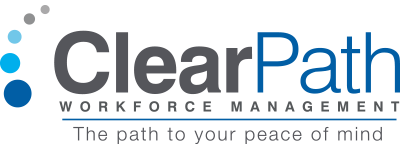The COVID-19 pandemic has devastated many workers’ livelihoods, including Independent Contractors’ (IC). Congress is providing unprecedented relief to this class of workers, who have chosen entrepreneurship and excluded themselves from the traditional employee benefits. The Coronavirus Aid, Relief, and Economic Security Act (“CARES”) was signed into law on March 27, 2020. CARES expanded the unemployment insurance benefits (“UI benefits”) to independent contractors, although this type of worker is not typically covered. It provides nearly $2 trillion of support to families and businesses during the COVID-19 pandemic. The federal government is also providing guidance to states on assisting the self-employed. States must then determine how to evaluate claims.
Many states are updating or have updated their UI claim forms and process to include “self-employed individuals” or independent contractor status. If state Unemployment agencies create new benefit forms with a box for claimants to check if they are self-employed individuals, companies won’t need to contest such applications for benefits during the period covered by the CARES Act, which has an end date of December 31, 2020. It can take weeks or more, and some states may not even process such claims by self-employed individuals until their claims have been denied as employees. State agencies ordinarily evaluate unemployment insurance claims using the W-2 tax form filed by companies to report wages, tips, and other compensation paid to employees. But independent contractors receive a different tax form – a 1099-MISC or K – and may also have to present past income tax returns and other records. Under the CARES Act, benefits for the independent contractors will be calculated based on previous income. Like other jobless workers, they also will be eligible for an additional $600 weekly payment.
Numerous state unemployment agencies are sending notices to companies in which workers, both those who were classified by companies as employees as well as those classified by businesses as ICs, have filed claims for unemployment compensation. There is a way for companies to protect themselves while still assisting ICs to receive desperately needed “unemployment” benefits available to them under the CARES Act. Companies are typically given only a few days to respond to notices from Unemployment offices about a claim that has been filed. When the claim is submitted by an employee, little if no action is normally required unless the employee was terminated for cause. However, where the claimant has been treated by the company as an IC, and especially where the business engages dozens, hundreds, or perhaps thousands of workers as ICs, a single notice of a claim for unemployment benefits can effectively become a type of mini-class-action if the initial determination is that the claimant is an employee and not an IC.1
If the initial determination finds the claimant is not an independent contractor but rather an employee, or simply notifies the claimant and company that the worker is eligible for benefits, it is imperative to request a hearing and file an appeal on a timely basis. Failure to do so may cause a company to lose the right to challenge the determination, and may result in a final adverse determination that all workers classified by the business as ICs have been misclassified. Companies that anticipate a hearing should take steps to improve the argument that the IC has been properly classified under appropriate state law.
Many businesses that use a multitude of ICs are worried that state agencies may be motivated to approve a claim for benefits by an IC, when applying for benefits as an alleged employee of the company, because they will eventually get benefits in any event under the CARES Act. Businesses are also concerned that, following the end of the CARES Act unemployment assistance provisions, more ICs will apply for unemployment benefits than before, increasing the risk of a determination that such workers have been misclassified as ICs and are really employees.
Lastly, some businesses are concerned that state unemployment agencies will maintain a list of claimants who self-identify as ICs during the CARES Act period and then audit the company later on in 2020 or 2021 to determine if the ICs have been misclassified.
The issue of independent contractor misclassification has been a politically charged topic prior to this pandemic and will likely return to that environment once the Coronavirus crisis has ended. Recently, Uber and Lyft were hit with afresh lawsuit by California Attorney General Xavier Becerra and a coalition of city attorneys who allege the companies are misclassifying their workers in violation of a new state law. Under the California law, which went into effect on January 1 and is known as Assembly Bill 5 or AB-5, companies must prove that workers are free from company control and perform work outside the usual course of business in order to classify workers as independent contractors rather than employees.2 As it is best to have previously utilized an IC vetting process which documents the IC relationship in a compliant and consistent manner, it may be very beneficial to enhance your IC compliance process now.
Are you engaging independent contractors compliantly? Independent contractors can remain a viable operating option, and if your organization needs some help ensuring your ICs are classified properly, ClearPath Workforce Management has an IC evaluation process and risk mitigation services that bridge the gaps to enable compliant engagement of this highly skilled talent and to expand your talent supply chain. ClearIC™ can automate and simplify the Independent Contractor evaluation process while mitigating your risk via our full-service IC vetting process. Contact ClearPath for a complimentary 1:1 review of your current worker status.
Source:
1 https://www.jdsupra.com/legalnews/independent-contractors-filing-31877/
2 https://www.cnn.com/2020/05/05/tech/california-ag-sues-uber-lyft/index.html
- Written by: Connie Wendt
- Posted on: May 25, 2020
- Tags: EMPLOYER OF RECORD SERVICE, ENGAGING W-2 WORKERS, FREELANCER, INDEPENDENT CONTRACTOR COMPLIANCE, TEMPORARY WORKER, Unemployment Insurance, W-2 Worker Classification

